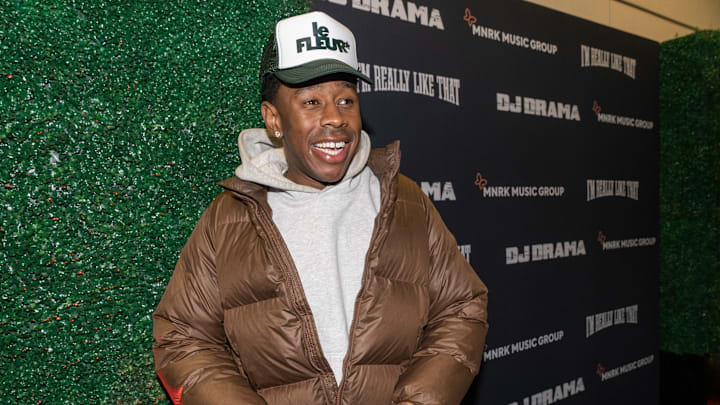For basically the entire duration of his career, you could count on a new major Tyler, The Creator project coming out every other year. This phenomenon held true from the late 2000s all the way up until the early 2020s without fail. But in recent years, this trend has been curtailed, and his release timelines have become much more unpredictable.
It is in this context that the newest addition to Tyler's catalogue, DON'T TAP THE GLASS, dropped seemingly out of nowhere. Only a matter of days after a promotional website was launched and a few art installations nodding to the album cover had popped up in multiple locations, it had arrived.
Tyler had an immature and at times inconsistent career beginning, but over the past decade, he built himself into one of the most unique, creative, and celebrated voices in the hip-hop genre. With this status has come much greater fanfare and expectations, making analysis of this new record with respect to the rest of Tyler's career that much more interesting.
How does Tyler, The Creator's new record stack up?
A detail that makes DON'T TAP THE GLASS stand out in Tyler, The Creator's discography is its runtime. Clocking in at a bit under 30 minutes over the course of 10 tracks, it is worth noting that this is by far the shortest studio album that Tyler has ever released.
Additionally, accompanying the album were urgings from Tyler to listeners that asked for them to dance and be active while consuming it. The sonic direction that he took definitely plays into that. Many of the instrumentals feature break beats and/or buzzing, explosive synths that lend themself perfectly to movement.
With this particular instrumental palette employed, there is no other record from Tyler that sounds quite like this one, a true testament to his ability to push his own boundaries. At the same time, Tyler is still very much the same guy, and many of his distinctive qualities carry over.
There is the clear West Coast influence that Tyler displays. There is his penchant for both rapping and singing, sometimes on the same track, and with varying vocal mixes. And, there is the ever-present duality that he exudes, a clash between abrasion and beauty.
One moment, Tyler could be confidently and aggressively spitting lines at you, such as on the intro, "Big Poe," or the driving cut, "Stop Playing With Me." Next, he may be earnestly singing for a love to stay present like on "Ring Ring Ring," or passionately calling out, asking where he can find love on the closer "Tell Me What It Is."
These are all attributes that make both this record, and Tyler, The Creator himself, special. Now, how does this new record fit into the larger picture of his ever-growing body of work?
While there are certainly themes that are explored over the album's runtime, its relative brevity prevents them from being fleshed out as thoroughly as many of his other works. As a result, it plays more as a compilation than a full-fledged artistic journey from him, and the quality does vary a bit based on the song you're listening to.
So, this is not an album that should necessarily be placed alongside Tyler's absolute best. However, that is not to say that this project is bad. Far from it, in fact. It is still very much a solid effort from Tyler, with a ton of quality material that new listeners and longtime fans alike should be able to appreciate. Just be sure to stay moving and not to tap the glass.
